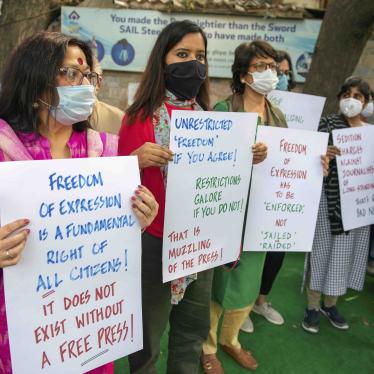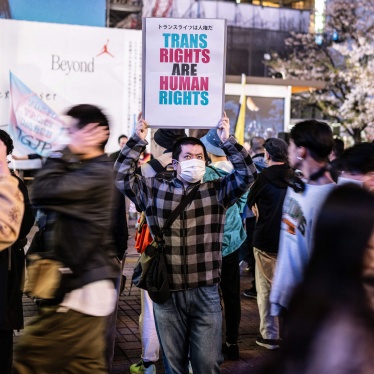Indians have to change the way they think of Nepal, if they think about Nepal at all. Right now, for many Indians, Nepal means spectacular mountains, servants (in the news only when accused of murdering their employers), a cheap holiday destination, or, for most, the actress, Manisha Koirala.
There is much more to India’s northeastern neighbour. Nepal is a nation of 23 million, with almost 40 per cent still subsisting below the poverty line (a line that is probably far too low to indicate the real scope of the problem). Many of Nepal’s economic problems can be blamed on decades of feudal rule by monarchs and a handful of elites. But after a decade-and-half of democracy, Nepal now boasts of highly talented writers, journalists and civil rights groups who are battling to pull the country up from centuries of autocratic, monarchic rule.
In Kathmandu, the rich and powerful are smart, well-travelled and cosmopolitan. But many, when they talk of the rest of Nepal, say things that Indians, after more than a half century of pluralistic democracy, would consider the relic of a bygone era. There are still too many Indians who claim that one religion is superior to another. Many still might even be unable to sympathise with the victims of big dams or slum clearances. But most Indians cannot ignore what goes on in the countryside — the inequities, the poverty, the health crisis. They are often indifferent, of course, but they cannot be ignorant. That is the power of democracy, a free press, a strong civil society, and a vibrant middle-class. And Indians have been fortunate enough to enjoy these advantages for 57 years.
In Nepal, there appears to have been generations of ignorance, still reflected in comments from the Kathmandu powerful such as "our soldiers behave badly sometimes, but that is because they have no airconditioning in the barracks!" The Maoist insurgency has forced the ruling elite to finally take notice of its "invisible" poor. The Maoists gained a degree of public popularity by talking of social justice, land reforms, and development. However, Kathmandu paid little attention to the movement until the Maoists became a militarily unbeatable and increasingly vicious guerrilla force that blithely executes its opponents. Now, instead of focusing on socio-economic improvement, many of Nepal’s rich take notice of the poor only by regarding their servants with suspicion, or wondering if the gardener is an informer or the waiter at their table is a Maoist leader. Instead of sympathising with their plight, many of Nepal’s wealthy have actually begun to despise and fear the poor.
One reason for this may be that the feudal system created an administration that rewarded loyalty to the palace, but was hardly ever accountable to Nepal’s people. The last 15 years of democracy might eventually have brought change, once political leaders with vision and commitment emerged through free and inclusive elections. But this was never given a chance. On February 1, King Gyanendra initiated the greatest threat to Nepal’s fledgling democracy, assuming all executive control and suspending most civil rights. Like most putschists, he claimed that he was destroying democracy in order to save it, claiming that the country’s political leaders were corrupt and more importantly, failing to address the Maoist threat and that he would restore democracy after three years. Predictably, he even found some support from Kathmandu’s comfortable rich. Without any attempt at understanding why the Maoists may have flourished in the first place, the feudal elite is trying once again to force Nepal’s people — most of them extremely poor — back into invisibility.
Soon after the King’s coup, hundreds were arrested, newspapers banned from criticising the royal diktat, and the Army given a free hand to commit the kind of abuses that had already drawn international concern. One student recounted to Human Rights Watch how he had been kicked while blindfolded by a captain in the Royal Nepalese Army, who taunted him: "After the royal proclamation, we own the country for the next three years." The student’s crime? He had dared to protest against the King. As if to underscore who was really behind the King’s coup, one of the first acts from the palace was to prohibit any speech or act that "hurts the morale" of the armed forces.
Given its record, the prospect of an unleashed Army is frightening. A newly released Human Rights Watch report, "Clear Culpability," documents how the Nepali Army, over the past several years, has conducted a widespread and systematic campaign of enforced disappearances, detaining over a thousand people without warrant or charge and frequently without any acknowledgement of where they are or even if they are alive. The report establishes that many of the detainees were held in Army barracks or other official installations, strongly suggesting that at least some senior military and civilian officials were directly aware of them. The United Nation’s Working Group on Enforced Disappearances announced that in both 2003 and 2004, it had received most reports of disappearances from Nepal than any other country.
In recent years, the Army has also been responsible for well documented extrajudicial killings, torture, and arbitrary arrests, among other serious violations. Despite this, even before the royal putsch Nepal’s security forces enjoyed near total impunity. Now that the king has taken direct control, the situation is even more dangerous. By removing even the modest constraints imposed on the RNA by Nepal’s small but once-outspoken press and human rights defenders, the King has given the Army a free hand to counter the Maoists — and commit unspeakable crimes in the process. Just recently, there were reports that nearly a hundred Maoists had been killed in clashes with the Army. With civil rights suspended, and its defenders on the run or under arrest, there can be no independent confirmation of the circumstances of these killings or the identities of those that died.
The Maoists have also become increasingly brutal. This week, they are planning yet another economic blockade to display their hold over the countryside, with little regard to the hardship that it will cause ordinary Nepali citizens. People often comply with bandhs because they fear for their security, not because they support the cause. As a political entity, the Maoists cannot hope to achieve international legitimacy, as long as they commit acts of terror, threaten and kill civilians, forcibly recruit fighters, many of them children, and torture and murder their opponents.
Nepal’s civilians are thus caught between these two brutal and unaccountable military forces. This crisis will have immediate implications for India, with its long, porous border with Nepal and close political, security, and historical ties. Political activists and human rights defenders have already started leaving Nepal, fearing for their safety. If the Army decides to launch operations to "break the back" of the insurgency, something that was suggested as the best solution by officials during interviews with Human Rights Watch, a much larger human rights crisis can follow. Innocent civilians, suspected by the troops of supporting the Maoists, and by the Maoists of acting as informers, may have to flee the violence and become refugees in India. Can India, a primary donor of military and development aid, afford to let this happen to Nepal?
India acted with resolution as soon as the King took over. The King gambled that the international community would acquiesce, preferring an authoritarian but friendly regime to a Maoist victory. But the international community, led by India, has refused to comply. The US, the UK and India have frozen military aid, calling for the King’s revocation of the state of emergency.
It is crucial that maximum pressure is applied on the king to reverse course. Nepal’s friends need to explain that repression will only breed greater disaffection and more converts to the Maoist cause. The Royal Nepal Army should understand that there will be no support for an Army that is more apt to murder and "disappear" its own population than push back the enemy.
Virtually every Nepali says their most fervent hope is for an end to the conflict. But no settlement is possible in Nepal today. The Maoists’ core demand is an end to what it describes as a feudal monarchy. The King will certainly not agree. But the King has another problem: while he represents the palace and perhaps the Army, after the coup he has little legitimacy to represent the Nepali people. In fact, the reason that democracy was created in 1990 was because of popular disaffection with the monarchy and its absolute powers. Nepal’s political party leaders may be as inept and corrupt as the King says they are. But they were accountable to the people.
In 1990, Nepal won its democracy by protesting on the streets, courting arrest, and bearing police abuse. However flawed, that process has to continue. India must encourage the restoration of democracy in Nepal. If fresh elections are called, India can share its experience in conducting elections in difficult states, like Jammu and Kashmir or Bihar. The Maoists would then be forced into a dialogue with elected representatives, perhaps even with the help of neutral international mediators. Meanwhile, India should also participate in the international efforts to strengthen the National Human Rights Commission, encourage both parties to agree to a code of conduct overseen by international monitors, and refuse to aid an Army that fails to respect international human rights standards. While India has little leverage over a Maoist party that operates without direct international support, it can make clear that unless it ends its horrible record of killings and torture, it can have no place in Nepal’s future.
India and Indians have to start thinking seriously about Nepal. It is no longer just a cheap holiday; it is a country in crisis at India’s front door. Now is the perfect opportunity to show what kind of emerging power India intends to be.
Meenakshi Ganguly is researcher on India for Human Rights Watch.








